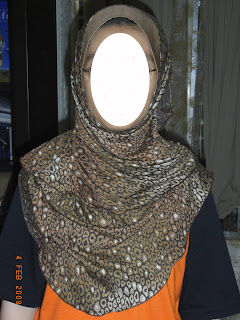Viral fever info
What is viral fever ?In medical terms, any fever caused as a result of viral infection is a viral fever. However, colloquially, the term 'viral fever' has come to mean a special type of fever that develops and then gets treated without the offending virus being specifically identified. The course and duration of the fever too does not seem to follow any set pattern and is frequently accompanied by, though not always by all of them, generalised bodyache, running nose, cough, shivering, feeling miserable, irritable and depressed.
How long do they last ?
Normally between 3 to 7 days with the former being termed as the 'three day fever' and the latter as the 'seven day fever'.
What medicines should one take ?
This must be decided by your medical doctor. Therefore, the doctor should be consulted without delay and his advice followed diligently. However, it is noteworthy at this point the famous saying 'a viral fever usually gets treated in 7 days with medications and in a week without any'. But without prejudice, please consult your doctor as a matter of routine! Normally, treatment is given for specific complaints like fever, headache, running nose, cough, etc
What are the precautions that one must take ?
Remember that any viral fever causes the body immune system to be severely tested. Therefore, the more danger arises as a consequence of having the viral infection than from the specific infection itself. Cough is usually not a good sign and chest infections caused by bacteria (like pneumonia) are quite common - especially in the young and old. Therefore, your doctor would normally prescribe some antibiotics which strictly are not indicated in viral fevers and they are known to cause more harm than good unless absolutely indicated.
What else can one do if someone has it ?
Discussion about the inadvisability of using antibiotics should be held under special heading and are really out of place over here. There is one more thing. There is absolutely NO place for any sort of corticosteriods in the treatment of viral fevers. It may even prove fatal which is particularly tragic under the circumstances since they are not indicated in the first place. They compromise the body immune system even further, thereby increasing the risk of infections that may be almost impossible to cure even with the latest generation of antibiotics.Usually, the medications that are prescribed causes dryness of the mouth and the tongue may feel parched. Hence it is imperative to drink as much water as is possible. Besides water, which may be admixed with sugar and lemon and salt, etc., to make it tasty since plain water is plain boring if taken too often, especially in such conditions like viral fever where the patient is both miserable and irritable, soft drinks that are preferably without any colours added to them and are at room temperature (cold drinks aggravate the sore throat, running nose and especially cough), fruit juices that have been freshly squeezed may be taken. Soups, particularly chicken soup, is highly recommended as they are tasty, provide enough water and nutrition, and are said to have beneficial effects in such cases. The old adage 'feed a cold and starve a fever holds good. Please do however check with your doctor regarding the food you may or may not take since you may be having some infection where certain food and drinks are an absolute no no.Since the body becomes lethargic and there is loss of energy and also because the infecting virus spreads through sneezing, it is best if the patient is generally kept confined in a comfortable and airy place as much away from close contact with others. His clothes, particularly his handkerchiefs, are separately washed with good cleaning fluids. It is preferable if the patient uses disposable facial tissue paper which must be disposed off with care. The patient must also not undertake any hard work without getting the doctor's explicit consent first.The condition tends to cause irritability, as has been mentioned before, and depression apart from feeling miserable, particularly in the first stage of the condition (typically, but not necessarily, the first 24 to 48 hours). The attendants must therefore be understanding and sympathetic. The patient may not be in a mood to take food, and suffers from lack of taste. While food is necessary, there is not much case for force-feeding unless the patient is quite weak even to walk a few steps or get up from the bed after the first 48 hours have passed. Drinking plenty of fluids must however be insisted upon and making it tasty by adding sugar and squash or syrups helps a lot in making the drink palatable to the patient.
How can one avoid getting these infections ?
Frankly, there is very little chance of avoiding these. Though several vaccines have been developed and successfully tested, particularly in the USA where these infections, when they have occurred have lead to severe epidemics and fatalities, largely the causative viral strains are unknown and having them once does not guarantee any immunity from further infections, especially in the sub-continent. The best methods to be followed are staying away from persons who are sneezing and coughing, particularly during season-change and having a sound body constitution helps. Try not to use tissue papers and handkerchiefs of the suffers and dispose or wash them as hygienically as possible.





